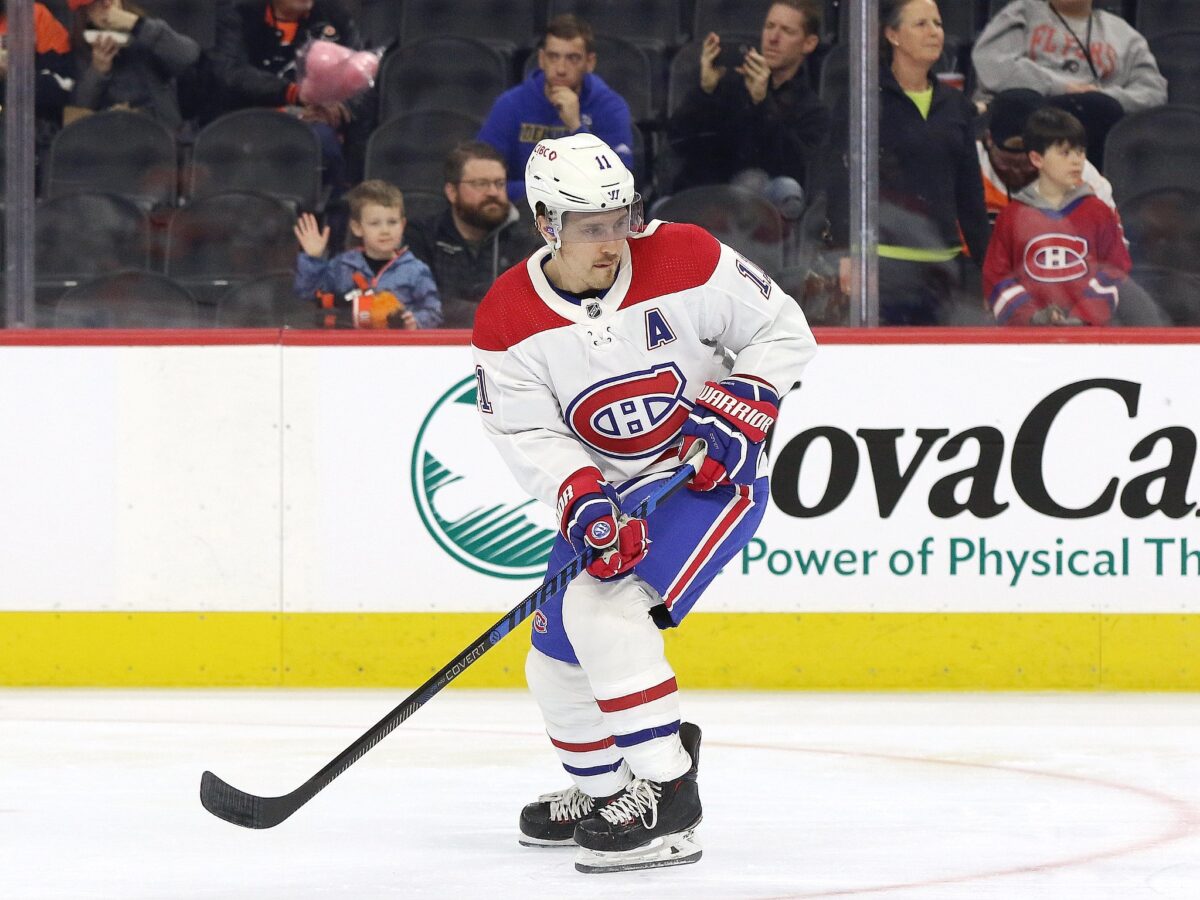With the Montreal Canadiens in a rebuild, they are not being judged, yet, on wins and losses. It’s more about individual player development. However, part of that development will need to be nurtured in an environment that the player has bought into. This is why it is important to build a team culture.
Creating a shared identity is crucial for a team trying to build itself into a high-performing one. This identity is basically to how members feel they fit, what role they fill and how they are valued. It can also indicate if an individual member can truly feel like this is the team they’re a part of and most loyal to.
Canadiens Need to Start with Purpose
To build a culture or “shared identity”, a team needs a purpose that is clear and understandable. As mentioned above, the Canadiens are in a rebuild and the current goal is individual player development.

An integral part of that process is defining the leader. In this case, it is head coach Martin St. Louis who has chosen to make the identity that of a family, with him as the father.
“I think coaching is a lot like parenting, I really care about these kids. To me, they’re kids. I know some are older than others, but I care for them like they’re my own.”
Martin St. Louis (from ‘Stu Cowan: Martin St. Louis wears many hats guiding Canadiens’ rebuild,’ Montreal Gazette, 7 Nov, 2023)
It’s about how their specific work relates to that overall mission. This, while about development on an individual level, includes how that fits into the team goal to become a team that can win in any situation. More importantly, it’s about who is positively affected by the team working well together. Which in this case, is every one of the young players.
Canadiens Focus on Goals
Starting with individual goals, there is a clear focus on 2022 first-overall pick Juraj Slafkovsky. St. Louis has stated that they already know what he can do offensively, but the current goal is to build his skills and ability to play away from the puck. But that doesn’t mean there isn’t any skills training either.
Related: Canadiens Wisely Working on a Montembeault Extension
Canadiens’ director of hockey development Adam Nicholas worked directly with him. Passing pucks, getting him to shoot quickly, and working on his release and timing. Then as he became more comfortable, accuracy and velocity.
This training, which occurred over all of last week, bore fruit almost immediately. It gave Slafkovsky the muscle memory, and more importantly, the confidence to apply what he had learned, and it led directly to some added scoring.
While that goal meant little in the outcome of that game, where the Boston Bruins took a 5-2 victory over Montreal, it is a building block. It is just one example of an individual goal given to a player, to learn a new aspect of shooting. One that should give him some more success, but also provides him with a visual of how his focus on building skills helps his team and creates an identity for himself in the group.
Onto team goals. In the post-game interviews after the loss to Boston, St. Louis was candid in his thoughts on his team’s performance as a group. He called them soft, because they gave the Bruins too much space and time along the boards, in front of the net and in all of the one-on-one battles. When the team returned to the practice facility in Brassard QC, St. Louis had a specific purpose, to re-establish a key part of the team identity as a hard-working group. Instead of covering multiple skills or actions, he chose one that impacts the team the most, the forecheck.
As seen above, they worked on cutting off time and space to their opposition over the entirety of the ice surface. That’s the kind of forecheck that makes a team difficult to play against, but also frustrating. That frustration leads to mistakes that become turnovers, even power plays. By returning to a fundamental area of his system, St. Louis is doing all he can to build good habits. This is something that he has had to address before, and by highlighting the importance again, he is also building accountability into the identity, by highlighting how an individual’s commitment to play this way helps his teammates as well as himself. Accountability breeds buy-in as well, as team captain Nick Suzuki’s comments after that hard practice highlights.
“I think our game was soft, “I don’t think as a team we’re soft. We didn’t play good — there’s no denying that. We were slow, we were late on pucks. We were turning the puck over. There are different terms you can use for soft … we definitely played soft on a team that plays hard. It was unacceptable. We know that and we understand we’re going to have to do better.
Nick Suzuki (from ‘Young Canadiens have an opportunity to prove their mental toughness to their coach,’ The Athletic, 21 Nov, 2023)
It is true, that the Canadiens’ success this season isn’t necessarily going to be judged on wins and losses. What it will be judged on is how individuals improve their games. That in turn impacts the other area that will be judged, how the team performs. Have they built their desired team identity as a team dedicated to playing a style that frustrates opponents?
Creating that shared identity is crucial for a team to achieve success. By St. Louis starting with a purpose, using it to build on values, getting his players to focus on goals, and defining good work habits, he is fostering a deeper sense of belonging and a bond among the team. Over time, this will lead to a more focused, cohesive, and productive team. Which is necessary if the Canadiens hope to take the next step in their rebuild.
